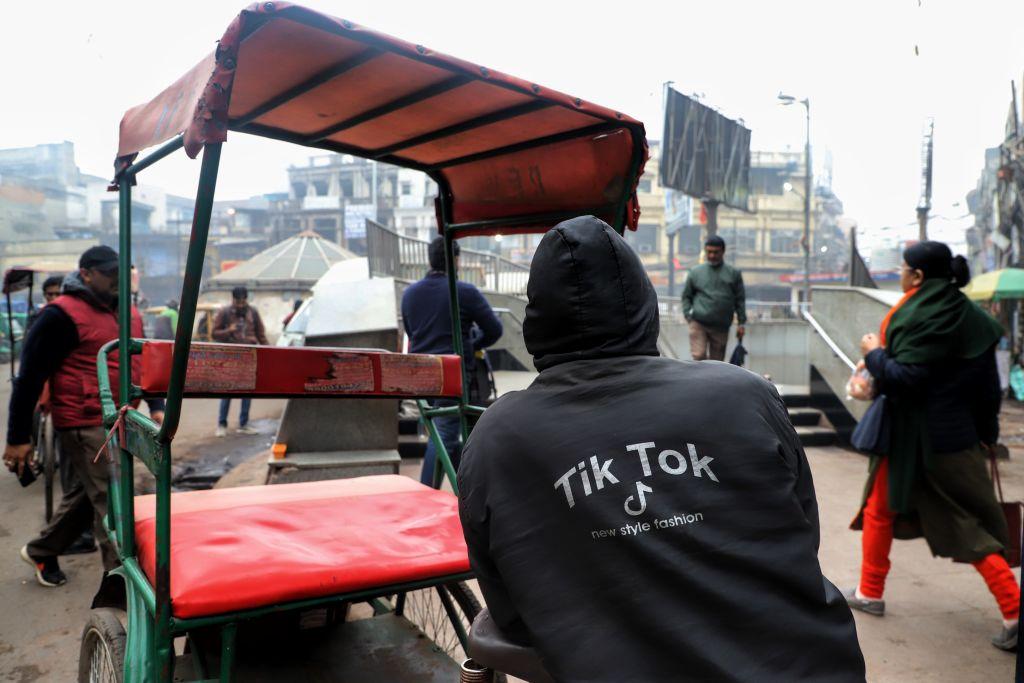
As tensions on the border between India and China have once again lit up, so too has anti-Beijing sentiment among Indians. Calls to boycott Chinese products have precedents in India, and this time Hindu nationalists are uniting against the Chinese-owned short-video streaming platform TikTok.
TikTok has gained immense global popularity since its launch in 2017 and is now the most downloaded social media app in the world, overtaking Facebook and YouTube, with 2 billion downloads as of April. The app has 800 million active users and its target audience is relatively young—most are aged between 16 and 24.
The app has a Chinese version called Douyin, which is available only in mainland China. The international version is not accessible to Chinese citizens.
India is now TikTok’s biggest market, where it’s reached 611 million downloads—a third of its total downloads worldwide. However, the app is also reported to have triggered murders and scandals, with clashes between different castes and religious and social groups that have resulted in accusations of racism, sexism, colourism and various other forms of targeted discrimination.
TikTok, as well as its parent company ByteDance, also remain under severe scrutiny in the West. American and European lawmakers and NGOs have voiced concerns over privacy, data storage, child protection and political censorship. In one case, a video posted by an American teenager who called out China’s treatment of Uyghurs was taken down and later reinstated after an international backlash.
Over the past three weeks there’s been a news storm in India about highly controversial videos published by famous users that caused significant outrage among celebrities, members of parliament and citizens.
The videos showed violence against women, animal abuse, pandemic-related fake news, and other such content. One viral video mimicked an acid attack on a woman. While TikTok responded to the public outcry by deleting videos and banning some of their authors, the most prominent of which was TikTok celebrity Faisal Siddiqui, people have criticised the company for reacting too slowly, and for allowing similar videos to remain on the platform.
Local media outlets have reported on many examples, including allegations that TikTok directed its employees in India to censor content related to Tibet and the Dalai Lama. That claim has not been verified.
#BanTikTokIndia and other related hashtags trended on Twitter throughout May as users took to different platforms. Some activists have also started an online petition urging that moderation of TikTok’s content be made stricter. It now has more than 80,000 signatures.
TikTok had been banned from the country in April 2019 due to concerns related to pornography, child abuse and paedophilia. ByteDance responded promptly by implementing more rigorous regulations and community guidelines and it was reinstated after two weeks.
This time, however, overcoming public disdain will likely prove more difficult, as activists seize this opportunity to build up an anti-TikTok protest online.
Large statutory bodies, such as the National Commission for Women and the High Court of Orissa, have called on the government to regulate the app. While no official decision has yet been made, Prime Minister Narendra Modi has announced a push for local products under the slogan ‘Vocal for Local’.
This move has indirectly affected TikTok, as it called on netizens to favour local tech products over their Chinese counterparts, and it prompted the popularity boom of an app called ‘Remove China Apps’, which scans users’ phones and deletes any Chinese applications. It was downloaded more than 5 million times before it was pulled from the Google Play store.
The current wave of criticism has also prompted people to leave negative reviews of TikTok online and on multiple online app stores. TikTok’s listing on Indian Google Play recently saw a rapid decline in ratings from 4.5 to 1.3 stars in one day. Google, however, has since deleted millions of reviews after detecting malicious activity by critics who appeared to have set up fake accounts.
Amid the legitimate calls for censorship of videos that seek to justify or encourage violence against women, for example, some Indian nationalists are taking advantage of the momentum to urge bans of videos that criticise the country’s government.
An Indian woman in Canada posted a TikTok video using the Indian national anthem to criticise Hindu nationalists and Modi. The video went viral and sparked rage, with calls for authorities to intervene, for TikTok to take the video down and ban the user, and for the Indian government to fully ban the app.
People filed reports and flagged the video, but TikTok is yet to comment.
The woman who posted the video has been the victim of online attacks and people have demanded that Indian authorities seek her arrest for insulting the national anthem.
These controversies are not good for business. The Indian market provides TikTok with more than US$3.3 million in revenue per quarter and another official ban would be a big blow to the company.
While TikTok’s leadership has so far ridden out the storm of public outrage, it will be interesting to see how, or whether, the app survives the #BanTikTokIndia outcry.